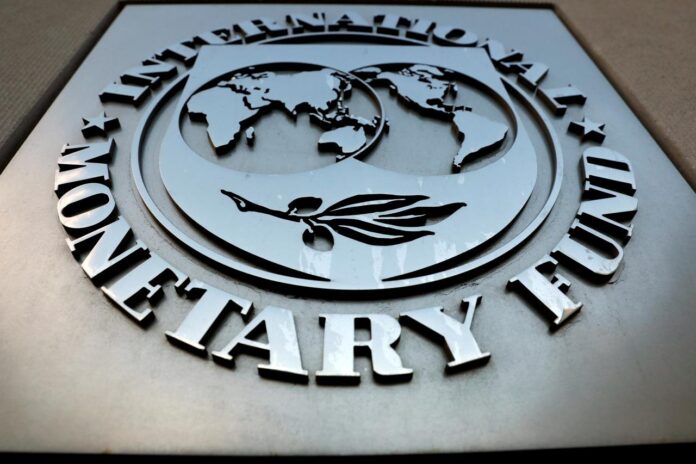WASHINGTON: The International Monetary Fund on Tuesday lowered its forecast for global growth this year and next, warning that more US-China tariffs, auto tariffs or a disorderly Brexit could further slow growth, weaken investment and disrupt supply chains.
The IMF said downside risks had intensified and it now expected global economic growth of 3.2pc in 2019 and 3.5pc in 2020, a drop of 0.1 percentage point for both years from its April forecast, and its fourth downgrade since October.
The global lender said economic data released so far this year and generally softening inflation pointed to weaker-than-expected global activity, with trade and technology tensions and mounting disinflationary pressures posing future risks.
The IMF slashed its forecast for growth in global trade by 0.9 percentage point to 2.5pc in 2019. Trade should rebound and grow by 3.7pc in 2020, about 0.2 percentage point less than previously forecast. Trade volume growth declined to around 0.5pc in the first quarter, it said, with the slowdown mainly hitting emerging Asian countries.
“The principal risk factor to the global economy is that adverse developments – including further U.S.-China tariffs, US auto tariffs, or a no-deal Brexit – sap confidence, weaken investment, dislocate global supply chains and severely slow global growth below the baseline,” the IMF said.
Weak trade prospects were creating headwinds for investment, and business sentiment was particularly pessimistic about new orders, although sentiment in the services sector had proven resilient, bolstering employment and consumer confidence.
Other risks, including tensions in the Persian Gulf, had picked up in recent months, and civil strife in many countries raised the spectre of “horrific humanitarian costs, migration strains … and higher volatility in commodity markets.”
The IMF said growth was better than expected in advanced economies like the United States, and one-off factors that had throttled growth in the eurozone were fading as anticipated.
The IMF raised its forecast for US economic growth to 2.6pc in 2019, but left its 2020 forecast for 1.9pc growth unchanged.
It lifted its growth forecast for the euro area to 1.6pc in 2020, leaving the 2019 growth outlook unchanged at 1.3pc.
TARIFFS HITTING CHINESE ECONOMY
At the same time, activity across emerging market and developing economies in Asia was disappointing, and second-quarter indicators for China suggested weaker activity there, the IMF said.
Escalating US tariffs and weakening external demand were pressuring China’s economy, which was already in the midst of a structural slowdown. China’s economy was now expected to grow 6.2pc in 2019 and 6.0pc in 2020, a 0.1 percentage point drop for each year, the IMF said.
The IMF also cut its forecast for growth in emerging markets and developing economies to 4.1pc in 2019 and 4.7pc in 2020. It slashed the forecast for Latin America and the Caribbean downward by 0.8 percentage point to just 0.6pc in 2019, reflecting downgrades to the forecasts for Brazil, Mexico and Argentina. Venezuela’s economy was expected to shrink about 35pc in 2019.
Russia also had a weak first quarter, the IMF said, revising downward its forecast for economic output in the Commonwealth of Independent States by 0.3 percentage point to 1.9pc in 2019.
Slower global growth and the drop in inflation across advanced and emerging market economies had revived the risk of disinflation, the IMF said, warning that missteps in macroeconomic policies could have a severely debilitating effect on sentiment, growth and job creation.
The fund urged countries to work at that multilateral level to reduce trade tensions and end uncertainty about the status of longstanding trade agreements between Britain and EU, and the United States, Mexico and Canada.
“Countries should not use tariffs to target bilateral trade balances or as a substitute for dialogue to pressure others for reforms,” it said.
It also called for efforts to ensure continued enforcement of existing World Trade Organization rules, resolve the deadlock over its appellate body, and modernize WTO rules to cover digital services, subsidies, and technology transfer.




